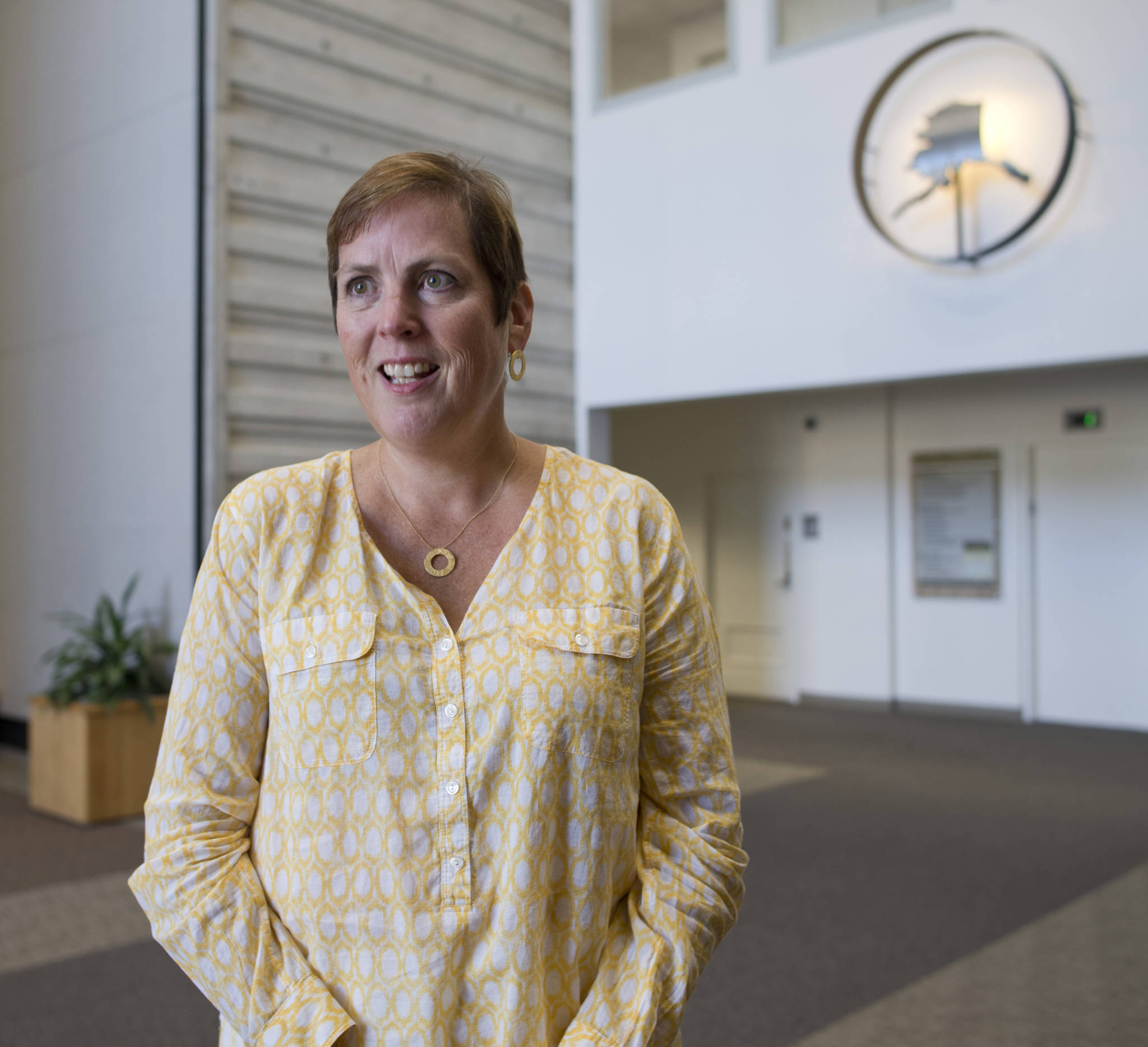The investment managers at the Alaska Permanent Fund Corporation have once again beaten the market. According to preliminary figures released Monday, the fund is up $5.1 billion in the fiscal year that ended June 30. That’s a return of 10.74 percent, much better than the fund’s recent average and much better than the goal for the fund.
“We knocked it out of the park,” corporation CEO Angela Rodell told the Empire in a Tuesday morning interview.
“We can really see we’ve done an amazing job this year,” she said.
It’s not just this year: Rodell has been CEO since 2015, and in that time, the fund has seen average returns of 7.96 percent. Again, that was above the goal set by the corporation’s board of trustees.
Speaking Tuesday, Rodell said she wants to see how the fund’s returns compare to other big public investment agencies. CalPERS, the nation’s largest public pension fund, announced 8.6 percent returns last month. That fund has $351 billion in assets; the Permanent Fund has about $64.9 billion. New York State Common, the nation’s third-largest public pension fund, returned 11.35 percent for a fiscal year that ended March 31.
Internationally, China’s equivalent to the Permanent Fund returned 15.7 percent from the year before. Norway’s equivalent, the largest in the world, returned 3.5 percent, then dropped in value during the first quarter of this year.
The Permanent Fund’s returns in the most recent fiscal year are down from FY17 returns of 12.57 percent.
In a speech to the Juneau Chamber of Commerce last week, Rodell told attendees that it is important to see the fund beat a passive index benchmark, or “if you let a computer do the investing for you.”
This year, that index would have returned 7.83 percent courtesy of a booming bull market. The fund returned nearly 4 percentage points above that, showing the work of the fund’s investors.
“I think you’re starting to see the benefits of that in-house management touch every asset class,” Rodell said.
The difference between a passive strategy and the active one used by the corporation works out to about $1.7 billion. Coincidentally, that’s approximately the amount the Alaska Legislature appropriated from the fund this year to pay for government services.
Rodell said legislative debates over spending from the fund (on dividends as well as government services) haven’t impacted fund returns so far: An investment strategy works whether a fund has $65 billion or $63 billion.
The key for the fund is stability. It fares best under a steady draw rate, and the corporation’s board of trustees has asked lawmakers to abide by strict rules when spending from the fund. Lawmakers approved some rules in their session this spring, but the binding power of that legislation has not yet been tested.
“The challenge will be keeping it at that limit and not violating their own rule,” Rodell said.
As they try to keep returns as high as they are today, fund managers will face more hurdles than those erected by the Legislature. Most investors believe the current bull market will turn bearish sometime in the next five years. No boom lasts forever.
“All the expectations by everyone globally is that this is going to turn down, and it will happen in that next five-year timeframe,” Rodell said.
The key for the fund is to be invested in such a way that when the downturn comes, the fund drops less than the rest of the market. Then, when the market rises again, the fund will again try to rise faster than the rest. For a fund whose name is also its primary goal, that’s the key to long-term success.
“The challenge is going to be maintaining that high level of performance,” Rodell said.
To meet that challenge, the fund is growing internally, moving away from external managers and toward in-house control. By the time the fund’s current five-year plan is finished in 2020, more than half of the fund will be controlled by investors in Juneau.
On Tuesday, construction workers were busily remodeling the fund’s offices to make space for more workers. An additional 10 have already been authorized by the Legislature.
“We’d rather pay people here in Juneau than pay people around the world,” Rodell said.
• Contact reporter James Brooks at jbrooks@juneauempire.com or 523-2258.

